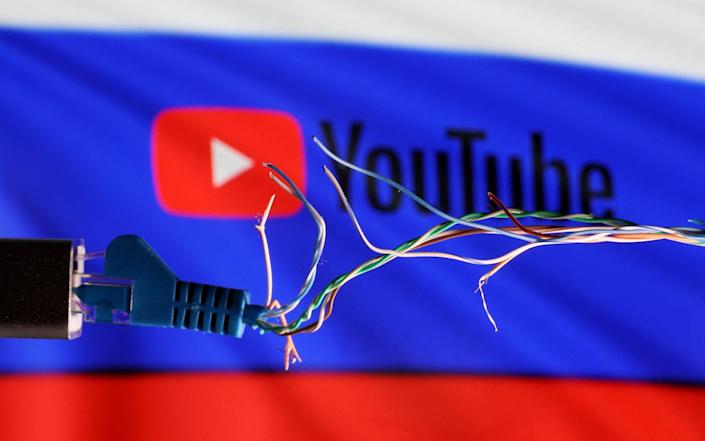
An undercover journalist has exposed the inner workings of Russia’s notorious “troll factory” which aims to boost domestic support for Vladimir Putin’s invasion of Ukraine by flooding social media with pro-Kremlin comments.
Fontanka, the Russian media outlet which first reported on the dedicated group of internet trolls, commissioned a reporter to infiltrate the propaganda operation run out of an office at a converted factory in St Petersburg.
The female journalist secured the job after she responded to an advert posted on the Telegram messaging app from a pro-Kremlin group looking to form “the cyber front that will repel attacks by Western-paid Kyiv propagandists”.
Commentators, spammers, content analysts and web designers were all asked to apply for vacancies.
In an article published on Tuesday, Fontanka reported its journalist was promised 45,000 rubles (£350) a month for working three to four shifts a week.
The journalist, who was unnamed, told how she arrived for work on her first day to find walls decorated with black flags with the letter Z, the symbol of support for the Russian invasion.
Multiple Google accounts
New recruits were assigned to several departments, each focused on posting comments through one social media platform, such as Telegram or YouTube.
Sitting on a bean bag in a room surrounded by young people, the team leader of YouTube, a man named Sasha, complained about the competence of staff he had available.
“I’ve dealt with people who would make two spelling mistakes in ‘Russia’,” he said, according to Fontanka.
“People are posting online that no one in Russia is supporting the authorities – but you can write something different. You don’t have to say the majority of Russians support the authorities. I’m someone who supports them. You can say: I have friends who support the authorities.”
Paid trolls were provided with multiple Google accounts to post comments on their selected social media platform as supervisors circulated advisories on what to upload such as talking points and quotes from official Russian statements.
The operation appears to have the hallmarks of a propaganda machine bankrolled by Yevgeny Prigozhin, also known as “Putin’s chef”.
Prigozhin owns catering businesses and restaurants where the Russian leader has hosted dinners with foreign dignitaries and more recently has won contracts to supply meals to the Russian military.
[embedded content]
The operation was in full swing in 2016 when Fontanka reported paid trolls were used to smear Hillary Clinton’s presidential campaign.
In 2018, the United States charged 13 Russians working at the factory with meddling in the 2016 US presidential elections and blacklisted several companies linked to Mr Prigozhin.
Pro-Kremlin managers working at the office denied links to the Russian government or the defence ministry, telling Fontanka’s undercover reporter the project is funded by “sympathetic businessmen”.
When the reporter did not show up at work the next day, she was contacted by a senior manager identified as Alexei Nekrylov, who has been employed by three St Petersburg companies mentioned in the 2018 US indictment as acting as legal fronts for the troll factory.




